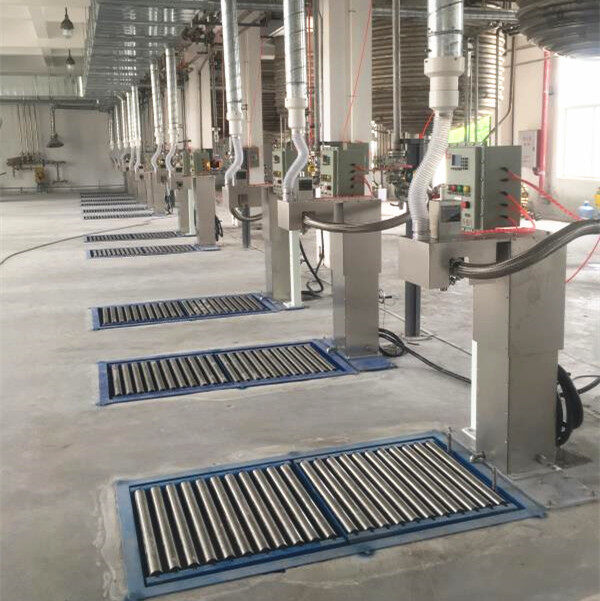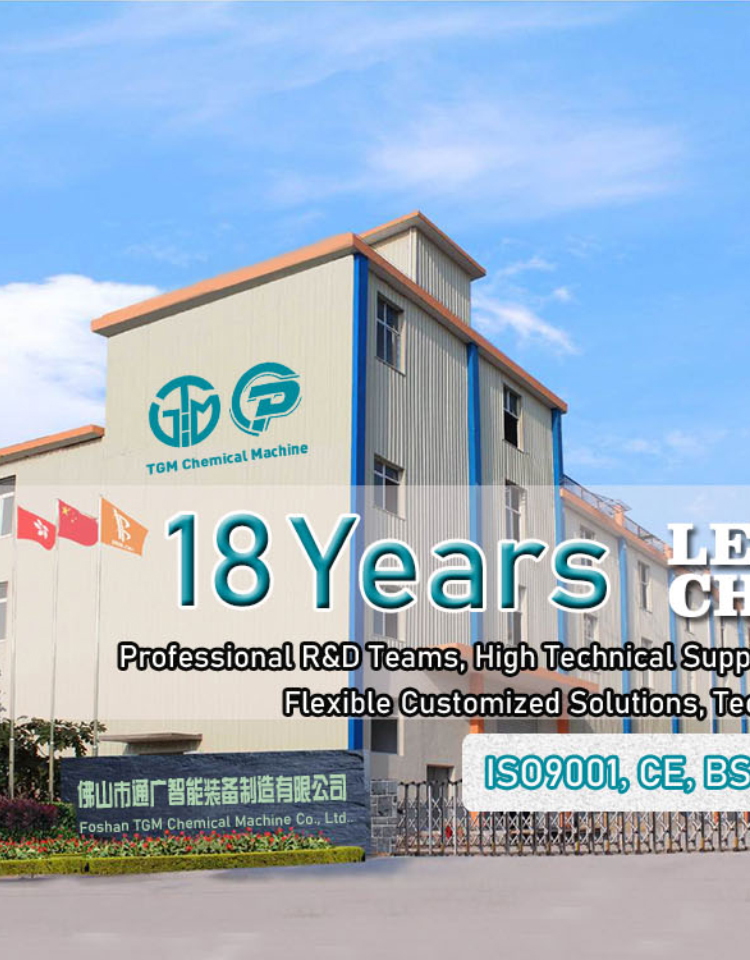Email cannot be empty
Password cannot be empty
Email format error
Email cannot be empty
Email already exists
6-20 characters(letters plus numbers only)
The password is inconsistent
Email format error
Email cannot be empty
Email does not exist
6-20 characters(letters plus numbers only)
The password is inconsistent


A Comprehensive Guide to Epoxy Resin Production Line: Essential Insights and Equipment
Epoxy resin, a versatile material used across various industries, is manufactured through a specialized production line to ensure quality, efficiency, and consistency. In this guide, we explore the epoxy resin production line in-depth, focusing on its essential components, the processes involved, and the benefits of an optimized production setup.
Understanding the Epoxy Resin Production Line
The epoxy resin production line is a carefully organized setup that transforms raw materials into high-quality epoxy resin products. This line includes various machines and systems, all working together to produce the resin in a streamlined, efficient manner.
Epoxy resin, due to its adhesive properties, chemical resistance, and strength, has broad applications, including in electronics, construction, automotive, and marine industries. A robust production line ensures that the product meets industry standards while being cost-effective.
Key Components of an Epoxy Resin Production Line
To produce epoxy resin effectively, an epoxy resin production line incorporates specific equipment. Here are the primary components:
-
Mixing Tanks: These tanks blend raw materials, ensuring a homogeneous mixture. Advanced mixing tanks may have temperature control features.
-
Heating Reactors: Heating reactors control the resin’s temperature during synthesis, which is essential for achieving the desired chemical properties.
-
Distillation Columns: Used to purify and remove unwanted by-products, distillation columns are critical in maintaining the resin’s quality.
-
Cooling Systems: Cooling systems are essential in the final stages of resin production, allowing the resin to solidify into its finished state.
-
Filling and Packaging Stations: Once the resin is ready, it is packaged, labeled, and prepared for distribution. Automated systems enhance the speed and precision of this process.
Epoxy Resin Manufacturing Process
The epoxy resin production line follows a multi-step process to convert raw materials into usable resin. Here is an overview:
-
Material Preparation: Resin production begins with the preparation of base chemicals, typically epichlorohydrin and bisphenol-A.
-
Mixing and Heating: In this stage, the ingredients are mixed and then heated in reactors. The exact temperature and mixing time vary based on the resin type.
-
Polymerization: This chemical reaction combines molecules to form larger chains, creating the essential resin structure.
-
Distillation and Purification: To maintain the resin’s high quality, by-products and impurities are removed through distillation.
-
Cooling and Storage: After distillation, the resin is cooled down gradually before being transferred to storage tanks.
Benefits of a Well-Designed Epoxy Resin Production Line
An efficient epoxy resin production line offers several benefits, including:
-
Cost Efficiency: Automated processes reduce labor costs and minimize waste, leading to a more economical production process.
-
Consistency and Quality Control: A well-structured production line ensures consistent quality across batches.
-
Scalability: Modern production lines can be scaled according to demand, providing flexibility for manufacturers.
Choosing the Right Epoxy Resin Production Line Equipment
Selecting equipment for the epoxy resin production line depends on production volume, desired resin properties, and the specific application. Considerations include:
-
Production Capacity: Choose equipment that matches your intended output without excessive maintenance.
-
Automation Level: Automated systems increase efficiency but may have higher upfront costs.
-
Quality Control Capabilities: Advanced equipment with real-time monitoring can detect inconsistencies early, ensuring quality.
Factors Affecting Epoxy Resin Quality and Production Efficiency
Several factors impact the quality of epoxy resin and the productivity of the epoxy resin production line:
-
Temperature Control: Maintaining consistent temperature is crucial for ensuring the correct chemical reactions occur.
-
Mixing Speed and Duration: Proper mixing at controlled speeds affects the consistency and strength of the final product.
-
Raw Material Quality: Using high-quality raw materials minimizes impurities and reduces the risk of defects in the resin.
Focusing on these factors can significantly improve the quality and efficiency of the epoxy resin production process.
Safety Measures in Epoxy Resin Production
Safety is paramount in operating an epoxy resin production line. Key safety practices include:
-
Ventilation and Air Filtration: Proper ventilation reduces exposure to fumes and airborne particles.
-
Protective Gear for Workers: Workers should wear gloves, masks, and eye protection to prevent direct contact with chemicals.
-
Regular Maintenance Checks: Regular equipment inspections prevent malfunctions and ensure safe operation.
Future Trends in Epoxy Resin Production
The epoxy resin production line is continually evolving with advancements in technology. Key trends to watch for include:
-
Sustainable Production: Many manufacturers are moving towards eco-friendly practices, focusing on reducing waste and minimizing environmental impact.
-
Automation and AI Integration: Artificial intelligence and automation are streamlining production, enabling predictive maintenance and reducing manual labor.
-
Customized Resin Formulations: With increasing demand for specialized resins, production lines are adapting to create custom formulations for specific industrial needs.

Conclusion
In the resin manufacturing industry, the epoxy resin production line is the backbone of quality and efficiency. From its key components to the critical manufacturing steps, an optimized production line ensures high-quality output, consistency, and scalability. By understanding the equipment, factors affecting quality, and trends in the industry, manufacturers can make informed decisions to enhance their production lines, ensuring they meet the growing demands for epoxy resin in various applications.
With the right epoxy resin production line and attention to quality control, safety, and innovation, manufacturers can achieve excellent results, positioning themselves for long-term success in the epoxy resin market. Whether you’re setting up a new production line or looking to improve an existing one, this guide provides the foundational knowledge needed to make strategic, informed decisions.

